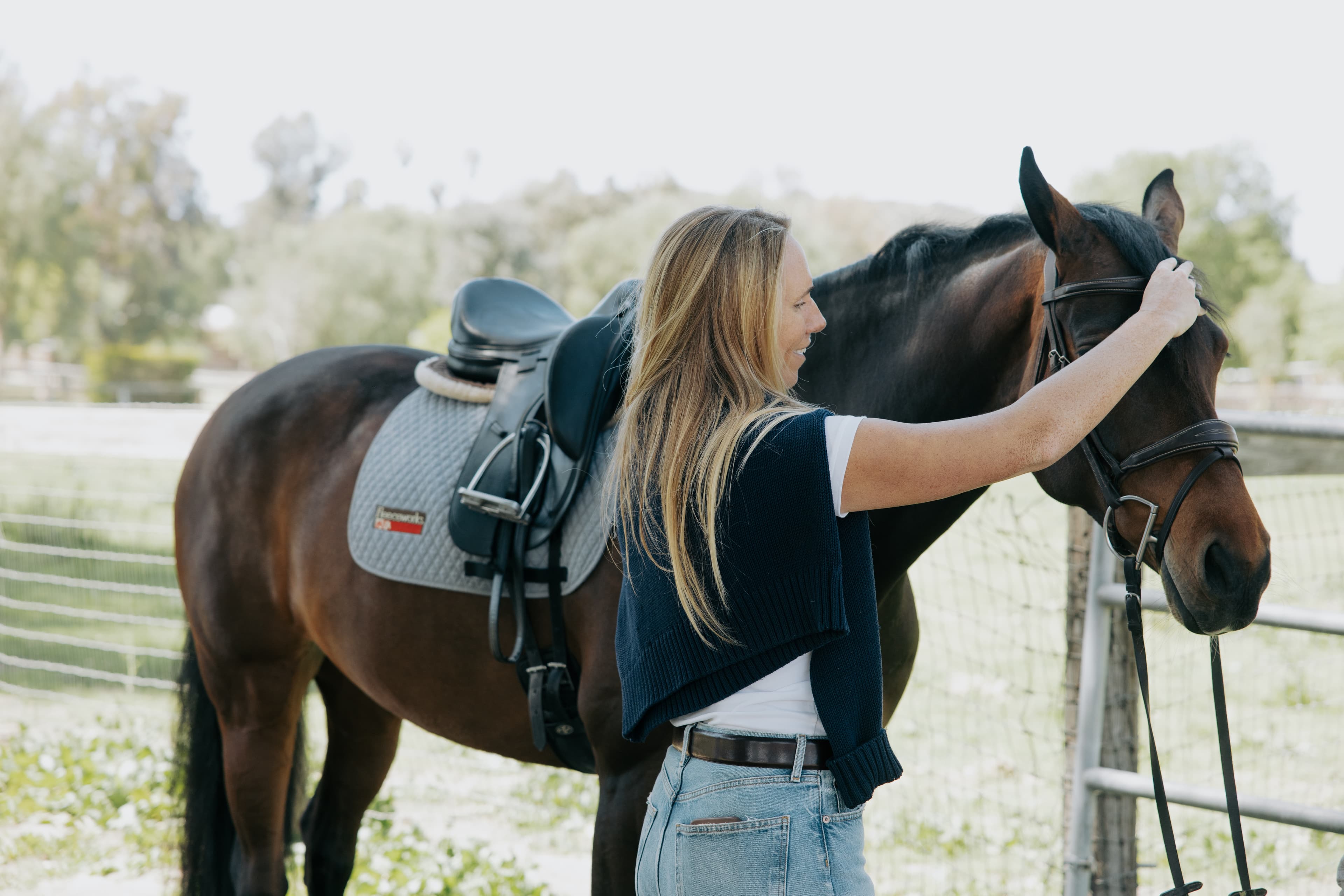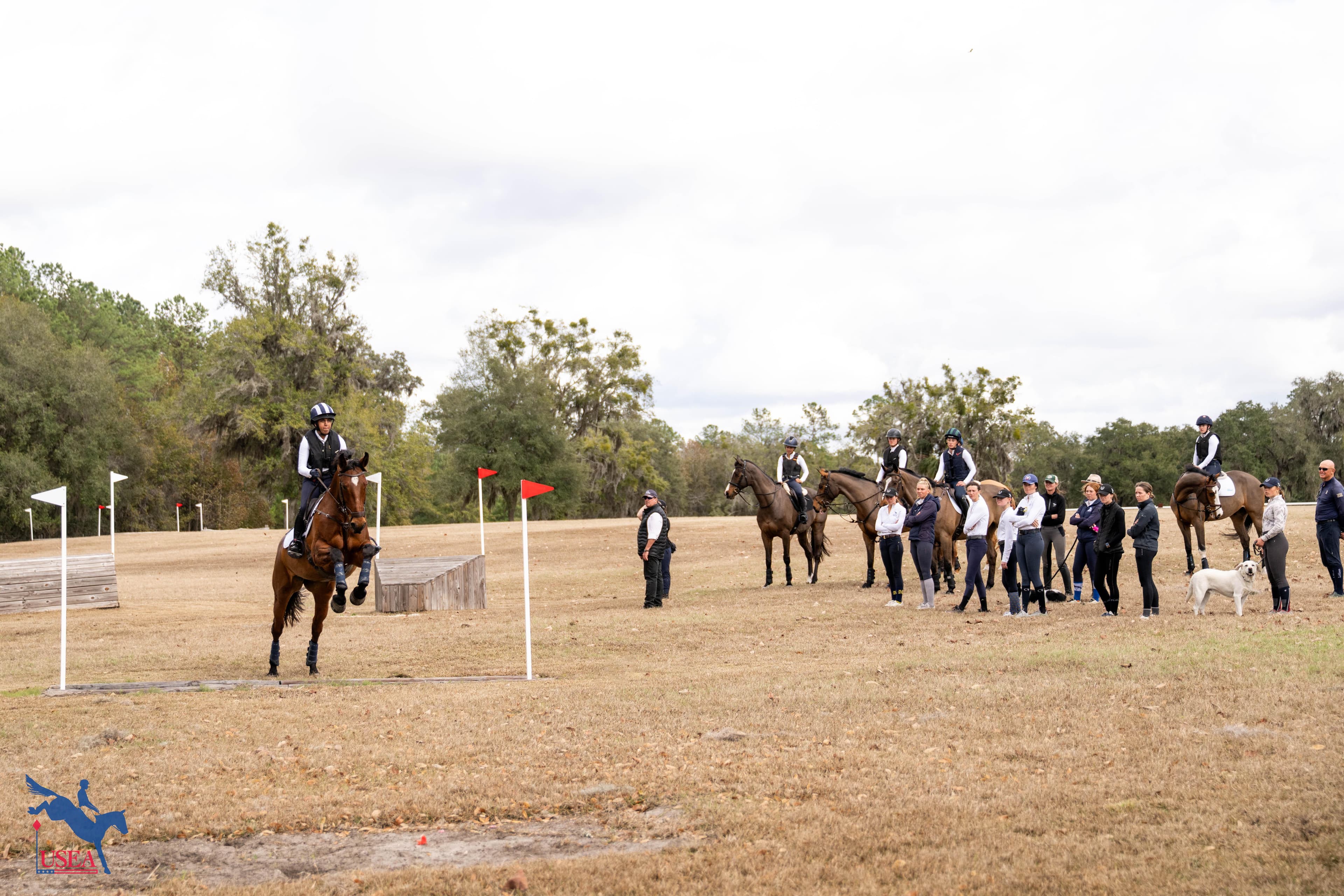Long Distance Running for Fitness with Kelli Temple
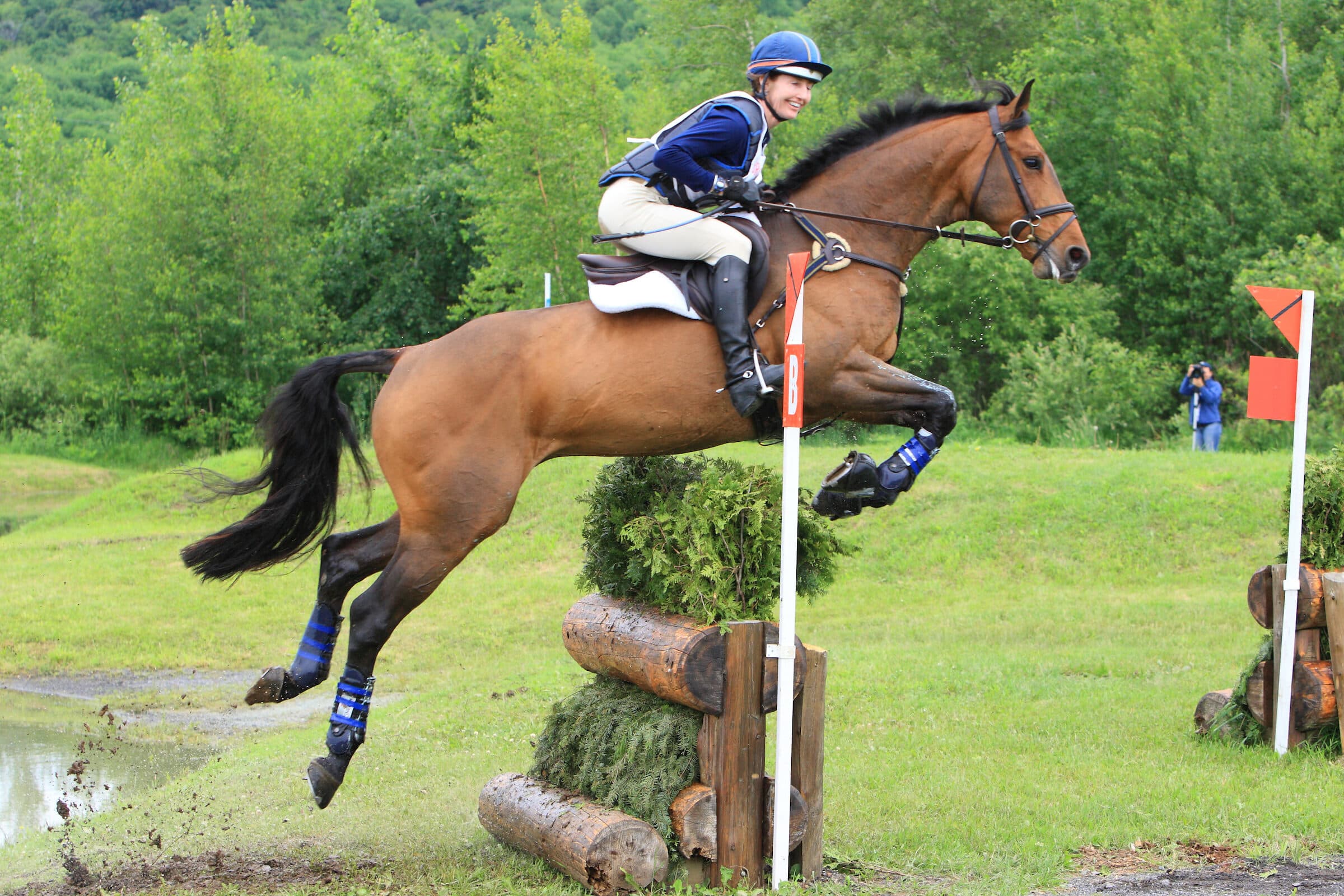
Every body is different, and different fitness regimes work differently for different people. For Canadian Olympic and World Equestrian Games eventer Kelli Temple, her preferred method of cross-training is running – specifically, running marathons.
“I run, but I only run on my day off, which is Monday,” Temple elaborated. “Basically, I run once a week. My boyfriend is a veteran marathoner and he’s the one that’s helped me develop a fitness schedule that would make sure I got to the marathon and was not overwhelmed. I’ve run eight marathons and qualified for the Boston Marathon four times and I don’t run more than once a week.”
“I decided to start running about five or six years ago because I had an injury where a horse kicked me and I broke my ankle,” Temple continued. “I had to have it plated and I was off my feet for a little while and I was feeling really unfit and I’m getting a little bit older and I wanted to make sure my reactions stay quick enough. So, one day I decided, ‘I think I’ll just go running.’ I think I ran 30 minutes that first day. I called my boyfriend and told him I ran 30 minutes and he said, ‘That’s a great start!’”
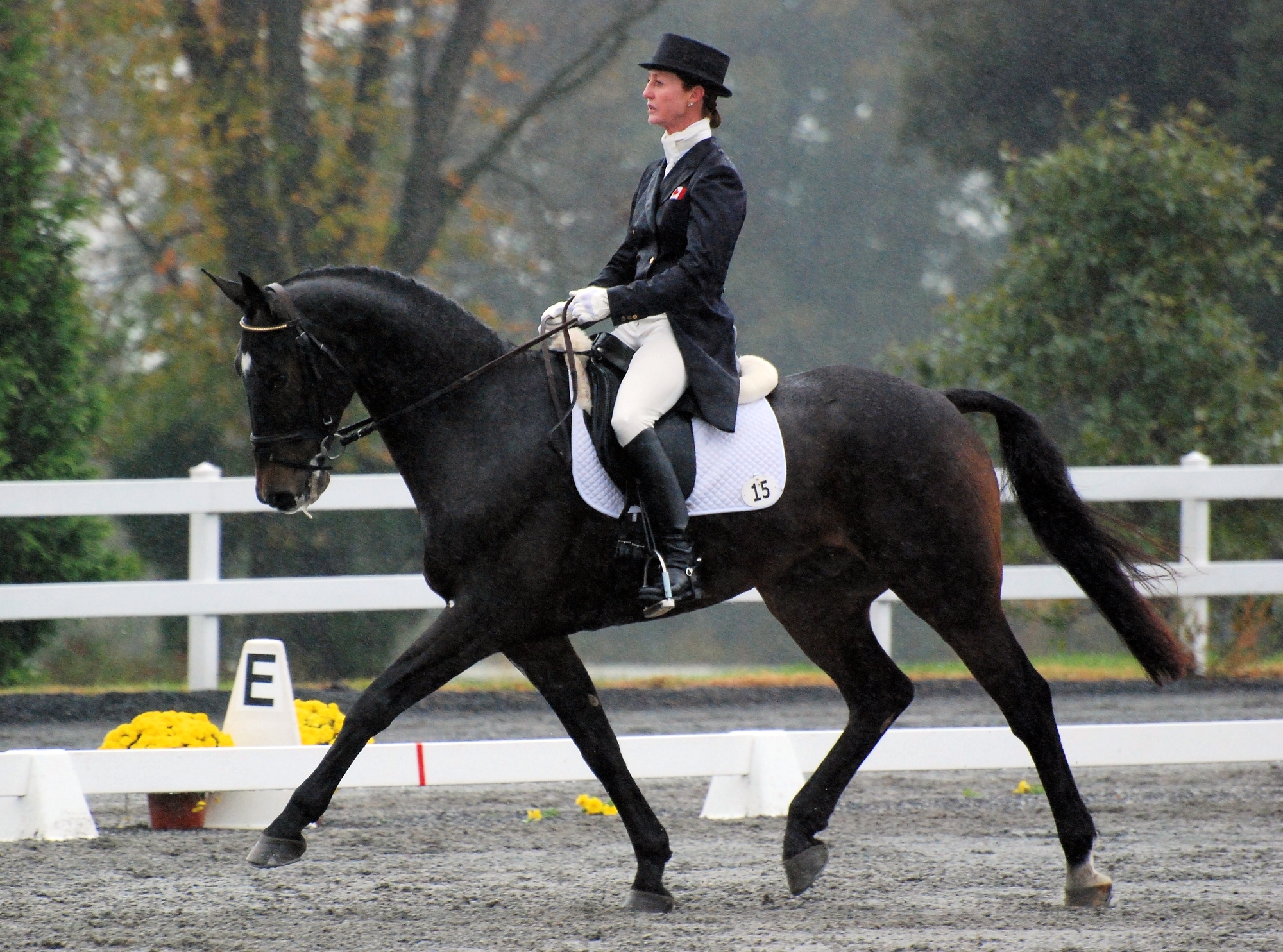
Temple explained that she uses an interval system to train, much like the kind of training riders use to condition their horses for a major competition. “When you’re building towards a marathon you have a base that you run and that’s usually around 10 miles, and then you count backwards from the marathon,” Temple said. “You want to finish being able to do about 20 miles – I think I did 24 miles. You count backwards and you alternate weeks, so your final run might be 22 or 24 and the week before that you do 10, and the week before that you do 20 or 22, and the week before that you do 10 again. You keep subtracting two miles every other week and alternate with doing your base run. You use your base run as a recovery week and then you push yourself a little further every other week. It’s very similar to interval training for horses. Like anything, it takes a while to develop your base of fitness and you really have to psychologically be prepared for running for four hours.”
For Temple, one of the most important takeaways she’s learned from running is the importance of recovery time. “Less is more,” she said. “Just like with horses, recovery is the most important part. Most people when they decide to have any sort of fitness routine, they overdo it and then they get sore and discouraged and don’t want to do it anymore because it’s not fun. It’s important to let your body recover and not get so obsessed that you think you have to do the same grueling routine every day.”
As far as other things riders can do to increase their fitness, Temple says there’s nothing to keep you fit for riding like horse work. “I’m a big advocate for cleaning stalls, sweeping the aisles, all these kinds of things are what build your base of fitness,” she said. “And, you can’t really develop a seat on a horse without sitting on a horse so you need to ride as many horses as you can ride. Every horse can teach you something – every time you’re in the saddle you’re building your muscle memory.”
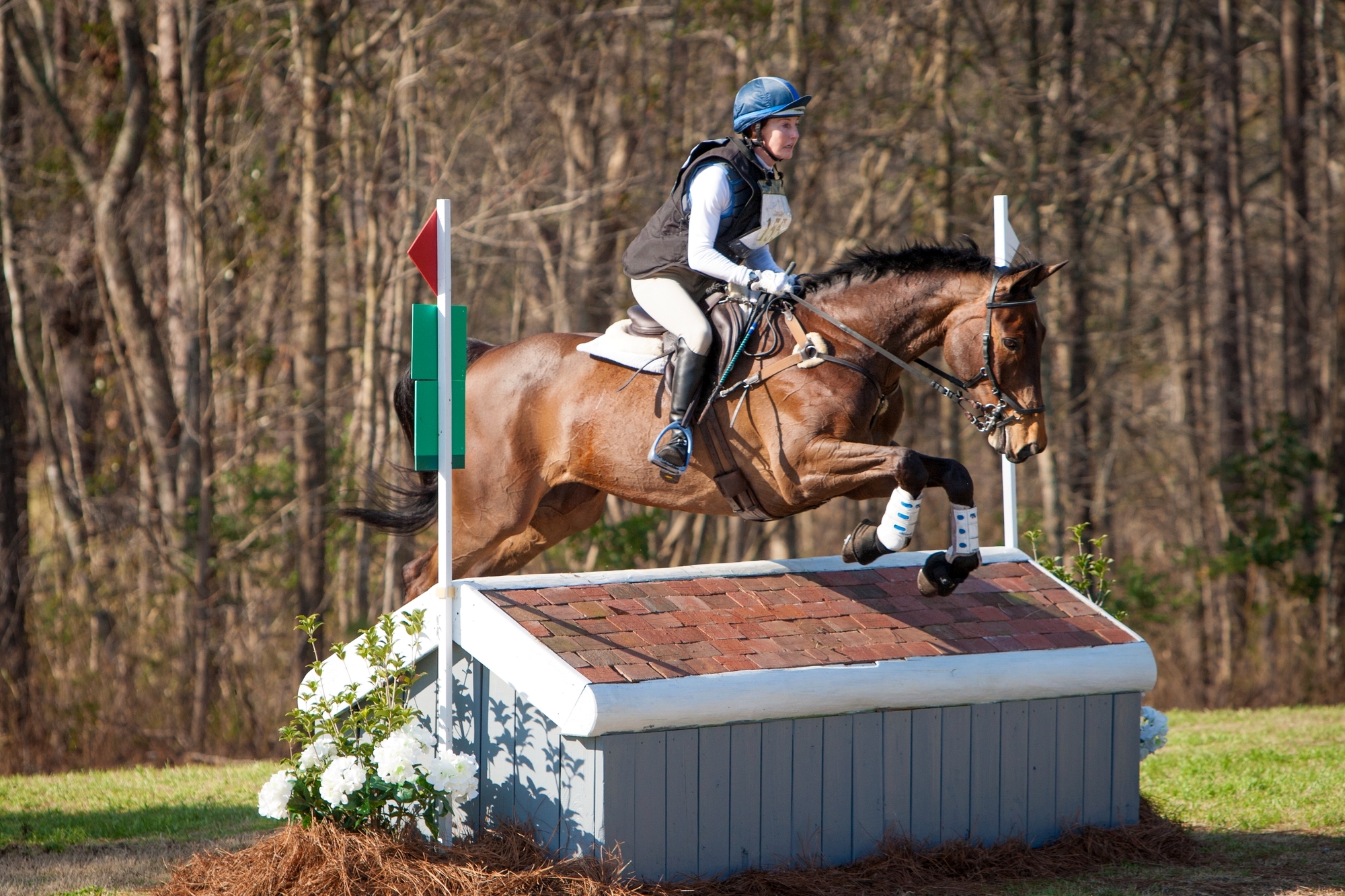
Cross-training with something outside the barn isn’t to be discounted, however. “There are certain things you can’t get with riding – horses aren’t going to give you the same kind of cardio workout as a run. I also think that being strong in your core is a really important element for riding. Do something that’s going to strengthen your core because that’s going to make your position stronger.”
“You can pinpoint things that are weak in your own body and work on those,” she continued. “if you’re someone who doesn’t have great upper body strength, carry the water buckets! It’ll help you when you’re galloping a strong horse.”
“I’m stronger and my reactions are quicker,” Temple observed. “I think it keeps you basic wellbeing so much better off. It doesn’t have to be running – it can be anything. I’ve done Yoga for a while, and even just going for a walk is super good for your heart and your lungs. You don’t want to be out of breath when you’re riding your horse. You go to a show and you’ve got to walk the course and warm your horse up and all that kind of stuff and you can’t be fighting exhaustion while you’re doing that.”
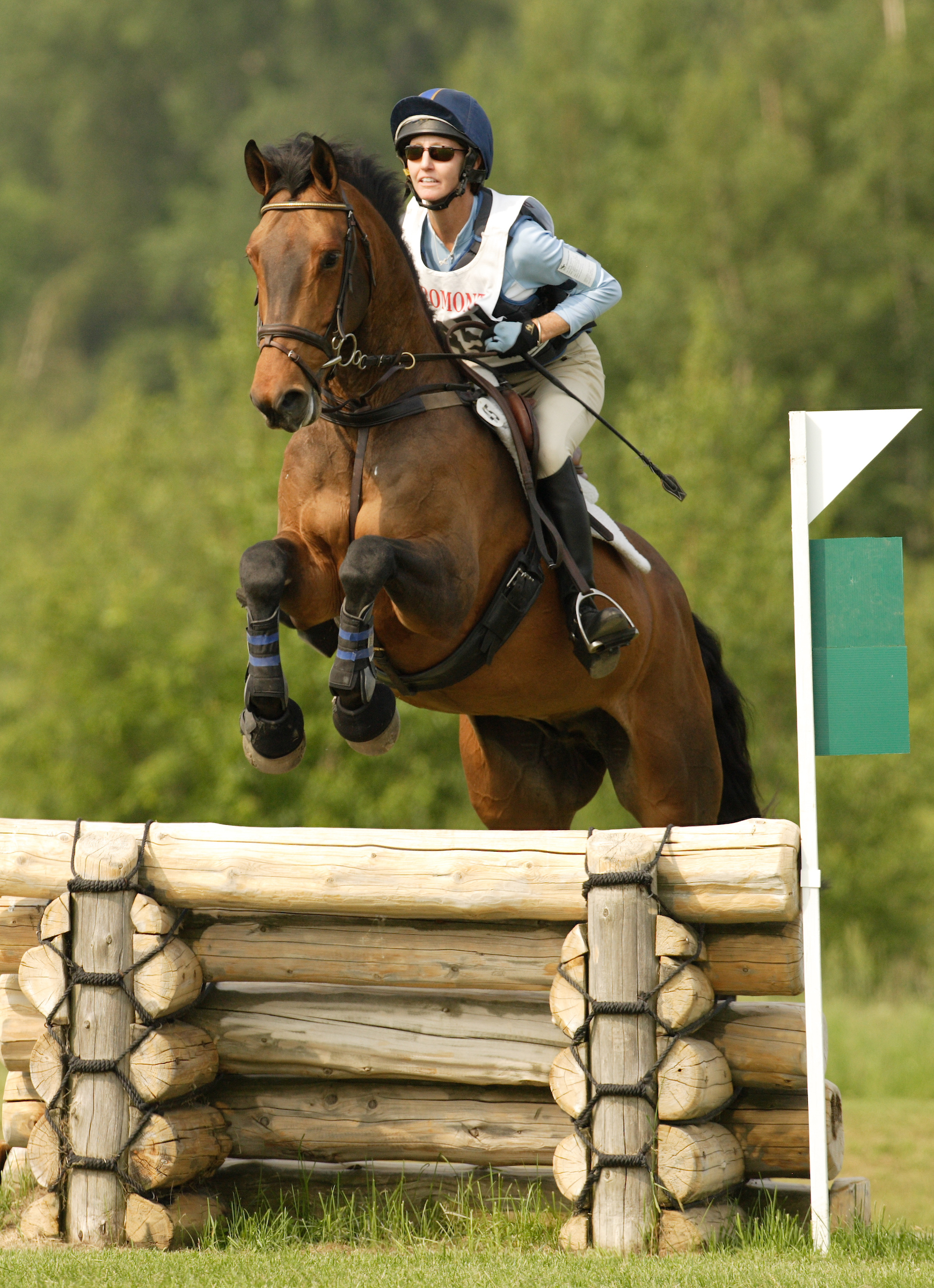
“It’s super important to find something that you enjoy, because if you enjoy it you’re going to keep doing it,” Temple advised. “And find someone to do it with! That makes it fun. My boyfriend is also a marathoner so we can spend three hours together running – we keep each other going. I’m not sure I would have done it if he hadn’t encouraged me. Just put one foot in front of the other – that’s what gets you started – and don’t give yourself such a hard time that you quit.”
While she doesn’t currently have a marathon planned on her schedule, she said she’s still going to train like there’s a race coming up. “I think it’s going for me to have something to do,” she said. “I’ll be training up to 22 miles but then I’ll probably just do what a horse does – take a little time off – and then start again. I just love the running part. I enjoy getting up and doing it, once I start I’m so happy I did it. It’s a great way for me to unwind and I think it makes me fresher for the riding.”
If you have a unique fitness routine, the USEA wants to hear from you! Email Jessica Duffy at [email protected] with your fitness routines, stories, or advice. To read other articles about rider fitness, click here.

